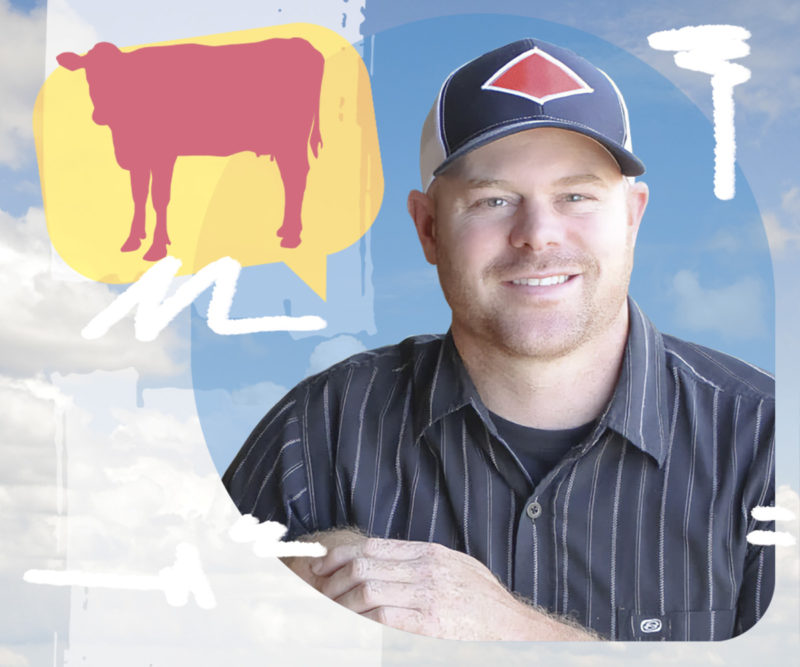There are a few things that cause a dairy farmer’s heart to jump into their throats: watching someone drop a bottle of Draxxin in slow motion, having your daughter's new boyfriend ask for a Beyond Meat burger at the family BBQ, and seeing the milk inspector's car come down the driveway.
There are a great many individuals who are trying to feed their family and improve the quality of milk produced on dairy farms. Then there are those who made the transition straight from being the high school hallway monitor to being a milk inspector. I think most dairy farmers have an adversarial relationship with inspectors of all kinds. The dairy demands of juggling employees, feed prices, cow health and growing feed weigh heavy on a producer, and then the inspector shows up to tell you about an errant weed growing in front of a milkhose port for the milkhouse.
Now, Mrs. Faber is my voice of reason, and after an afternoon of venting, she had asked me if I thought it was a possibility that in order for the public to have trust in food products, inspectors are an integral part of that trust. My response was, “No, I hadn’t considered that possibility.”
You see, your author is not particularly adept at fixing things. Most of the required fix-it projects from the last milk inspection were completed after watching two minutes of a nine-minute YouTube tutorial. So, when that day arrives where the dreaded car is meandering down the driveway, there is frantic scurrying around as people are attaching bungee cords to doors, attaching jetter cups, cleaning and closing milk filter containers, taking calf bottles out of milk vats and pulling weeds in front of milkhouse doors.
Now, all inspectors are human and humans are emotional. There is the rare exception where an inspector truly hates you or your gender, or loves their position of authority. But the vast majority of milk inspectors are similar to your senior history teacher in the last 45 minutes of class. If you can cause a distraction by asking about something that they are passionate about, you can burn the clock and reduce the amount of inspection time. Does he like fishing? Ask about what lure works best in the spring salmon run. Does she have grandchildren? You have three kids and can’t wait for the day where you are blessed with a couple tiny little pearls yourself. The difference between an inspection where you are there as the world’s most passionate fisherman in the world who loves grandbabies versus the day where you are absent is about 15 pages of needed improvements.
There have been stories of farmers in our area in the '60s that quit farming when they were required by the state to have milk temperature recorders on their milk tanks. Farmers today are inspected by milk inspectors, manure inspectors, co-op inspectors who inspect the inspectors and third-party inspectors who inspect the inspection of the inspectors who inspected the inspectors. You could have one issue that is pointed out three times by three different inspectors.
Having dairy inspections is like being married to all of your sisters-in-law at once. As much as inspectors love inspecting, we now have National FARM program rules written by people who love writing rules, to impress bosses who love reading rules, to pass on to inspectors who love enforcing rules. Now don’t get me wrong – we, as a civilized society, need structure and rules in order to maintain a healthy image and have standards that we, as an industry, are proud of. But being on the other side of multiple committees, inspections and chastisements has the ability to make even the most levelheaded person get a “don’t tread on me” tattoo.
Wow, this has been very therapeutic. Sorry to cut this short, but my eight sisters-in-law are over and just pointed out a deck that needs cleaning and some weeds that need picking. Until next time, keep those milkhouse doors closed.







